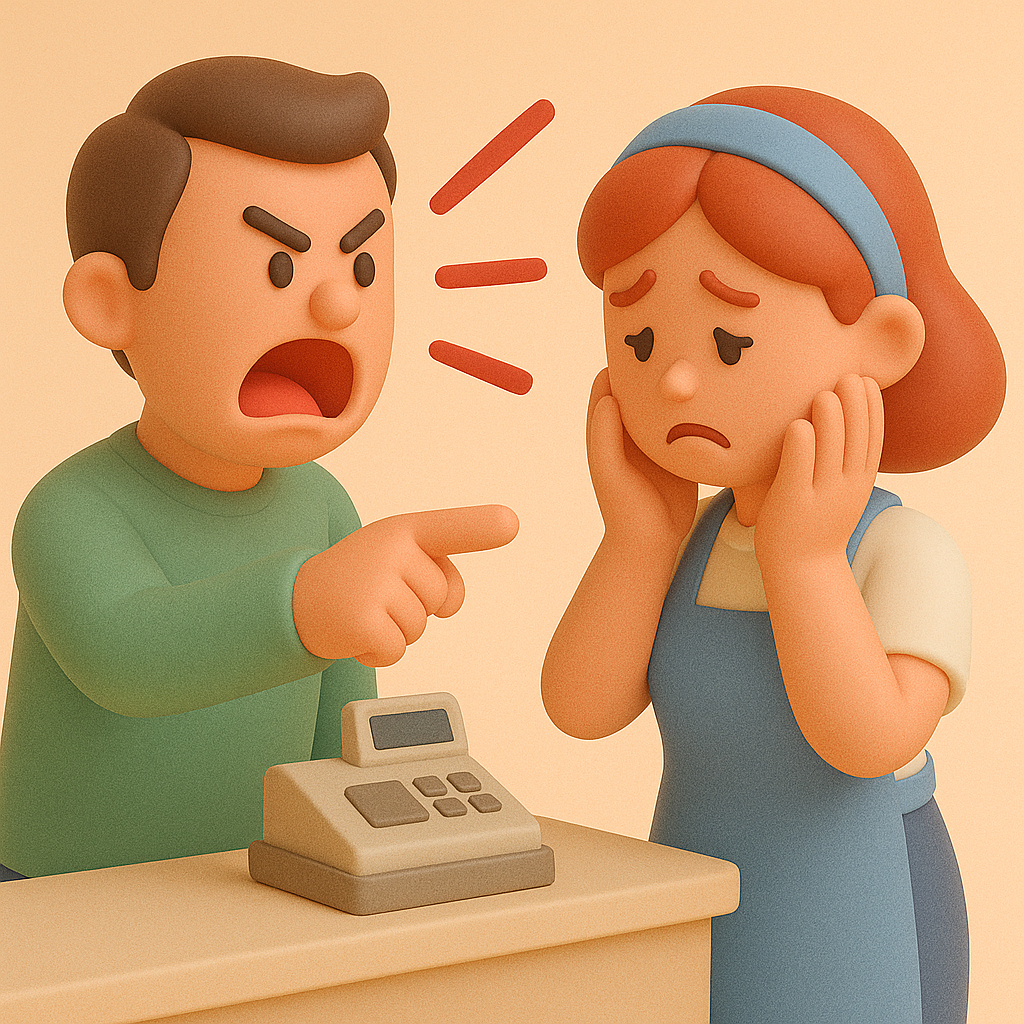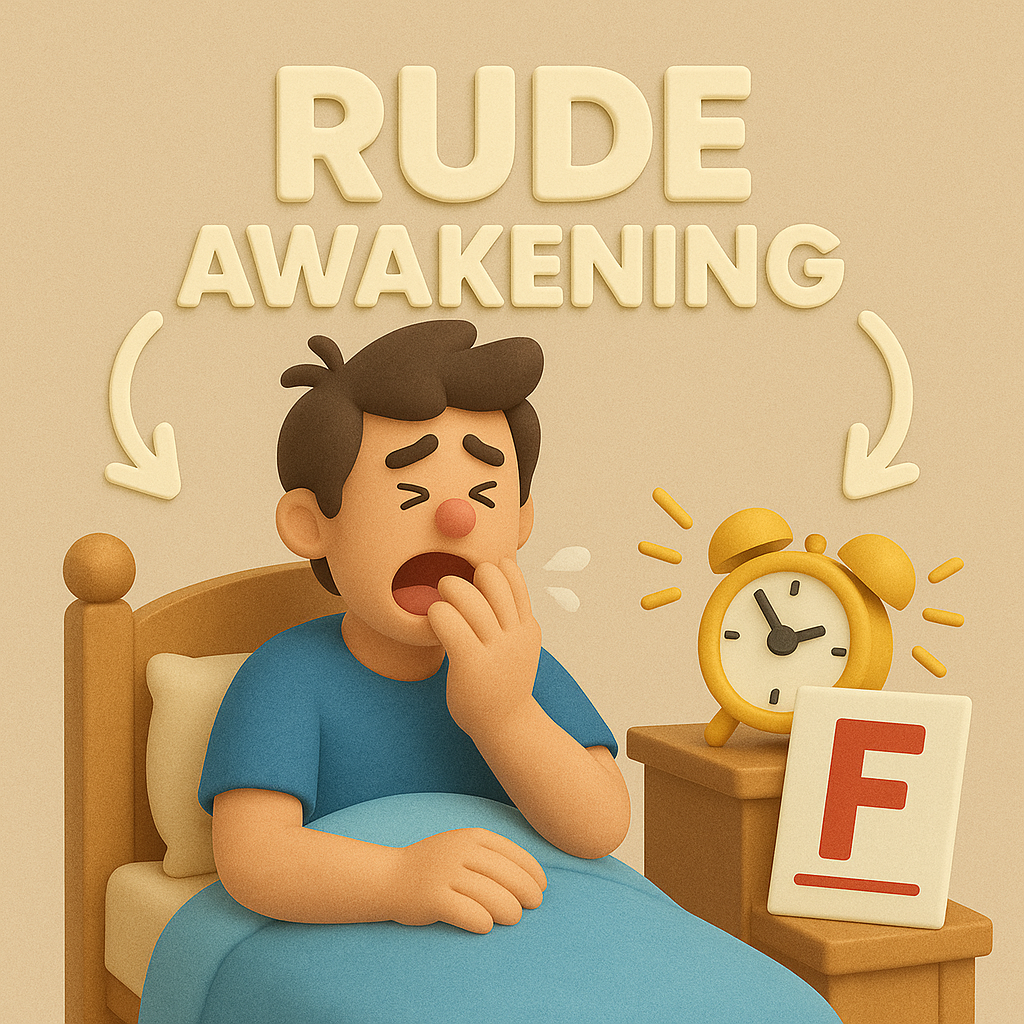Rude
Definition
The term "rude" describes behavior that is impolite, disrespectful, or lacking in manners.
Parts of Speech
- Adjective
Pronunciation
American English
- IPA Pronunciation: /ruːd/
- Respelling: ROOD
British English
- IPA Pronunciation: /ruːd/
- Respelling: ROOD
Etymology
The word "rude" originates from the Latin "rudis," meaning "unrefined" or "crude," later entering Old French as "rude" with similar meanings of "rough" or "impolite." It was adopted into Middle English during the 13th century.
Derivatives
- Rudely (adverb)
- Rudeness (noun)
- Unrude (adjective, archaic)
- Ruder (comparative adjective)
- Rudest (superlative adjective)
Synonyms
- Impolite
- Disrespectful
- Offensive
Antonyms
- Polite
- Civil
- Courteous
Usage
The term "rude" is often used to describe speech or actions that violate social norms of politeness. For example: "It was rude of him to interrupt the conversation," or "Her rude remarks offended the guests."
Related Terms
- Etiquette: The customary code of polite behavior.
- Courtesy: Polite and considerate behavior.
- Offense: A violation or insult, often caused by rudeness.
Detailed Definitions
Adjective
- Impudent or impolite in manner or speech: Refers to behavior that disregards social norms.
- Example: "The customer’s rude tone upset the staff."
- Crude or lacking refinement: Refers to something unpolished or rough.
- Example: "The rude tools were effective despite their simplicity."
- Unexpected or shocking: Often used metaphorically to describe a sudden or harsh experience.
- Example: "He was in for a rude awakening when he saw the results."
rude



🇨🇳 Mandarin
- 粗鲁 (Rude as in impolite): Cūlǔ
- IPA: /tsʰu˥lu˨˩˦/
- Respell: Tsu-lu
🇮🇳 Hindi
- अभद्र (Rude as in impolite): Abhadra
- IPA: /əbʱəd̪ɾə/
- Respell: Abh-ad-ra
🇪🇸 Spanish
- Grosero (Rude as in impolite): Grosero
- IPA: /ɡɾoˈseɾo/
- Respell: Gro-se-ro
🇫🇷 French
- Grossier (Rude as in impolite): Grossier
- IPA: /ɡʁɔsje/
- Respell: Gro-ss-ye
🇸🇦 Modern Standard Arabic
- فظ (Rude as in impolite): Fadh
- IPA: /fadʕ/
- Respell: Fadh
🇧🇩 Bengali
- অভদ্র (Rude as in impolite): Obhodro
- IPA: /obʱod̪ro/
- Respell: Obhod-ro
🇷🇺 Russian
- Грубый (Rude as in impolite): Gruby
- IPA: /ɡrubɨj/
- Respell: Gru-by
🇵🇹 Portuguese
- Rude (Rude as in impolite): Rude
- IPA: /ˈʁudi/
- Respell: Hru-di
🇮🇩 Indonesian
- Kasar (Rude as in impolite): Kasar
- IPA: /kasar/
- Respell: Ka-sar
🇩🇪 German
- Unhöflich (Rude as in impolite): Unhöflich
- IPA: /ʊnˈhøːflɪç/
- Respell: Un-heu-flish
🇯🇵 Japanese
- 失礼 (Rude as in impolite): Shitsurei
- IPA: /ɕitsɯᵝɾeː/
- Respell: Shi-tsu-rei
🇻🇳 Vietnamese
- Thô lỗ (Rude as in impolite): Thô lỗ
- IPA: /tʰɔ˧˩ lɔ˧˩/
- Respell: Tho lo
🇰🇷 Korean
- 무례한 (Rude as in impolite): Muryehan
- IPA: /muɾjehan/
- Respell: Mu-rye-han
🇹🇷 Turkish
- Kaba (Rude as in impolite): Kaba
- IPA: /kaba/
- Respell: Ka-ba
🇵🇰 Urdu
- بدتمیز (Rude as in impolite): Badtameez
- IPA: /bəd.tə.miːz/
- Respell: Bad-ta-meez





